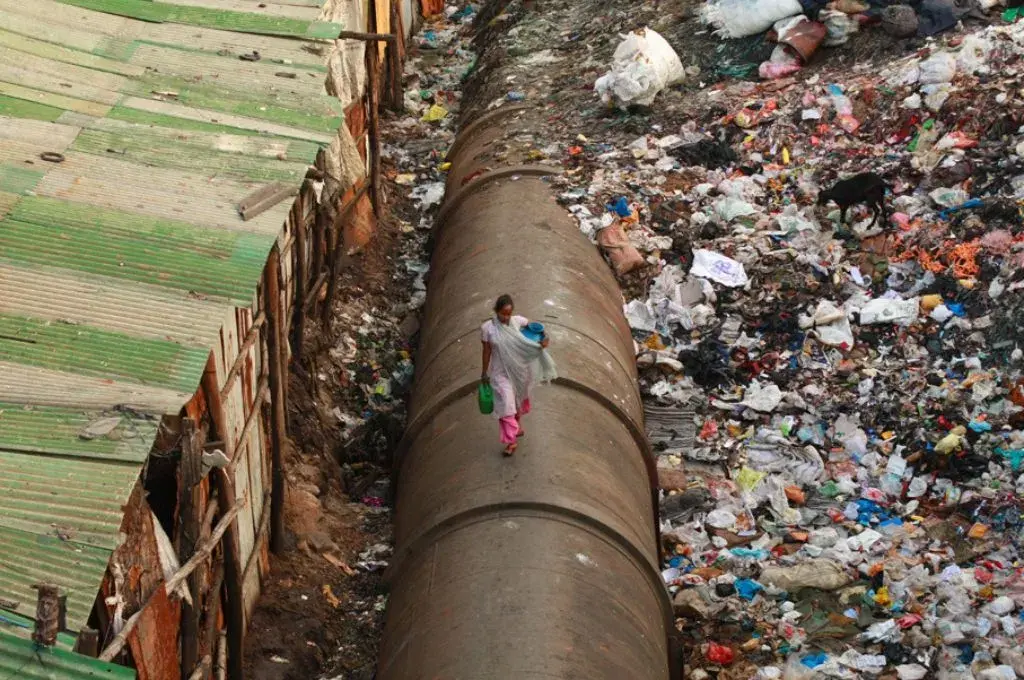If you have resources or information to add to this list please send them across to us at writetous@idronline.org
*This article was last updated on November 19th at 4:32 PM IST.
1. Article: Government signs off on a plan to further regulate nonprofits receiving foreign funds, by Pradeep Thakur
A centralised body, instituted by the government, will set standards for receiving foreign funds by nonprofits. It will also convene national and state commissions responsible for awarding grants to nonprofits. Read this article to know more.
2. Article: FCRA 2020 further tightens the bolts, by Noshir Dadrawala
With new, stricter rules around the FCRA, nonprofits are further deprived of clarity and respite. Notified on November 10th, the new rules relate to a range of issues—organisations of a ‘political nature’, eligibility criteria, bank accounts, and more. Read a simple, demystified analysis of the updates here.
3. Article: FCRA Catch-22, by Kabir Dixit
The provisions of the FCRA amendment prevent nonprofits from accessing foreign contributions and collaborating with other civil society organisations. It also threatens democratic spaces and dissent by restricting the scope to challenge these provisions. Read this article to know how the FCRA has created a climate of fear among non profits.
4. Announcement: Procedure for opening FCRA accounts, by the Ministry of Home Affairs
Under the amended Section 17 of the FCRA Act, 2020, foreign contributions can only be received through a designated ‘FCRA account’ opened in the SBI’s New Delhi Branch. Read this public notice detailing the procedure here.
5. Article: By law, the heat is on nonprofits, by Ingrid Srinath
The FCRA Act 2020 adds to the systemic repression of dissent and public debate in India. It is imperative that the government permit ongoing grants to be completed (as per terms prevalent prior to the amendments). Read this article to understand why this is crucial to the well-being of Indian democracy.
6. Article: Choking the nonprofit sector, by Amitabh Behar
Civil society often plays the role of a permanent opposition, holding those in power accountable, and bringing in the perspective of the most marginalised. The FCRA Act 2020, passed in both Houses of Parliament without any deliberations, deepens a licence raj that could throttle this role. Read this article to learn more about how the act reflects a deeply flawed understanding of democracy.
7. Article: India’s crackdown on nonprofits, in four charts, by How India Lives
The FCRA Amendment Act, 2020 continues the pattern of raising compliance costs for nonprofits. This article uses data to illustrate the decline in FCRA-registered nonprofits, the decline in the quantum of foreign grants, and the implications for the sector at large.
8. Announcement: The Foreign Contribution (Regulation) Amendment Act, 2020, in The Gazette of India
Despite appeals to the President of India to withold passing the FCRA Bill 2020 into law, it has just been published in The Gazette Of India as an act. Read the announcement from the Minsitry of Law and Justice here.
9. Article: An air of mistrust around nonprofits, by The Wire
The FCRA Bill 2020 is being used to crackdown on nonprofits, while a lack of transparency continues to surround PM-CARES. The Wire explores the issue in this article, with statements from Poonam Muttreja, Ingrid Srinath, Harsh Jaitli, AK Singh, and others.
10. Statement: FCRA Amendment 2020 undermines the work of civil society
The International Commission of Jurists (ICJ) has condemned the adoption of the FCRA Bill 2020, stressing that the bill’s provisions will impose arbitrary obstacles for human rights defenders and civil society. The ICJ urged the President of India to withhold assent to pass the Bill into law. Read their statement to understand how the FCRA Bill 2020 is incompatible with international law.
11. Press release: Appeal to the President to not sign the FCRA Bill 2020
Questioning regulatory changes being imposed amidst a pandemic, grassroots organisations and prominent members of civil society appeal to the President of India to send the FCRA Bill 2020 back for a parliamentary committee consultation. Read their statement here.
12. Report: FCRA Storm | A non-technical analysis of the FCRA Bill 2020
A step by step analysis analysis of implications of the amendment bill on the different players in the nonprofit sector, along with a way forward.
13. Webinar: FCRA Storm | Decoding the FCRA Amendment Bill 2020
A technical panel, along with voices from civil society, will come together to discuss and decode the FCRA Bill 2020 on September 29th, 2020.
14. Article: Behind the new rules FCRA rules, a clear political message: fall in line, by Amitabh Behar
The FCRA Bill 2020 which was passed by the Rajya Sabha has to be understood in a political context. The message is loud and clear: A single narrative being crafted in India and any challenge to power is seen with suspicion and crushed with brute force. Amitabh Behar writes about the issue in this article.
15. Article: Why civil society matters, by Hindustan Times
There is a thin line between enforcing transparency and using rules to allow official interference and harassment in the sector. Much of the present bill crosses that line and moves toward a licence-raj on nonprofits. Read this article in the Hindustan Times for more.
16. Article: How FCRA amendments hurt India’s development and democracy, by Ingrid Srinath
The FCRA Bill 2020 was passed by the Lok Sabha with minimal debate. More nuanced discussion, in a select committee for instance, would have thrown light on the potential hazards to development and democracy. Ingrid Srinath explains further in this article.
17. Press release: Refer FCRA Bill 2020 to a parliamentary standing committee
Voluntary Action Network India (VANI)—an apex body of Indian voluntary development organisations has issued a press release asking for the FCRA Bill 2020 to be referred to a parliamentary standing. Below is the press release issued by them:
- Voluntary Action Network India (VANI), being an apex body/national association of Indian voluntary development organisations strongly feels that the FCRA Bill 2020 will be a death blow to the development relief, scientific research and community support work of the NGO community as it prohibits collaboration with other Indian organizations.
- At a time like this, when India is battling a deadly disease, with so much at stake and collaborations internationally that are to be encouraged, this would be a model of control, over and above the rules, regulations and certification processes, that stifles this important sector.
Related article: IDR Explains | FCRA
The new FCRA Bill throttles the spirit of cooperation that had been ushered in earlier this year by the positive role played by development organizations in mitigating the lockdown and COVID-19 pandemic by virtually making it impossible for NGOs to function.
- These amendments assume that all NGOs receiving foreign grants are guilty, unless proved otherwise.
- This makes NGOs open to possible harassment via queries which can be raised on almost any activity. This would impede collaborations and any other constructive activity they do.
- This restriction, when added to the existing restrictions which prohibit Indian organizations which win foreign research grants from sub-contracting a foreign institution (which, in essence, means that no Indian organization can be the lead institution in an international consortium), runs against the core mission of the government’s desire to strengthen India’s science/research performance.
- Collaborations even with national NGOs which are compliant with FCRA regulations, will be curtailed as the bill talks of no sub-granting, therefore killing the overall spirit of collaboration.
- The term Administrative Expenses in FCRA rules is defined to include all salaries (except for school teachers, doctors, and field researchers, trainers). This means all the salaries of outreach workers, field staff who support villagers and rural communities are also counted as administrative expenses. So this amendment will be a major blow to organisations in terms of payment of salaries, professional fees, utility bills, travel and other such expenditure.
- These rules may be intended to control the vast number of NGOs which engage in dubious charitable activities. We stand with the government of India in its efforts to put down such activities. But by failing to recognize the diversity of NGOs which include world-class science organizations, they will crush their competitiveness and creativity.
- Asking 20,000 charities to move their FCRA accounts to SBI Delhi will be hugely disruptive. Many will not be able to operate these accounts properly as the home branch will be in Delhi.
- With limited domestic philanthropy, such guidelines that criminalise activities of even those certified as FCRA compliant, thousands of small NGOs which enable good work and are dependent on legal funds obtained internationally, will shut down, also endangering livelihoods of those dependent on them for a vocation.
18. Did you know: Here’s how administrative expenses are defined under this Bill
Under FCRA 2011, institutions are allowed to spend up to 50 percent of their foreign funds on administrative expenditure. The FCRA Bill 2020 proposes to reduce this to 20 percent. Rule 5 of FCRA 2011 defines the administrative expenses as:
- Salaries, wages, travel expenses or any remuneration realised by the Members of the Executive Committee or Governing Council of the person
- All expenses towards hiring of personnel for management of the activities of the person and salaries, wages or any kind of remuneration paid, including cost of travel, to such personnel
- All expenses related to consumables like electricity and water charges, telephone charges, postal charges, repairs to premise(s) from where the organisation or Association is functioning, stationery and printing charges, transport and travel charges by the Members of the Executive Committee or Governing Council and expenditure on office equipment
- Cost of accounting for and administering funds
- Expenses towards running and maintenance of vehicles
- Cost of writing and filing reports
- Legal and professional charges; and
- Rent of premises, repairs to premises and expenses on other utilities
Provided that the expenditure incurred on salaries or remuneration of personnel engaged in training or for collection or analysis of field data of an association primarily engaged in research or training shall not be counted towards administrative expenses.
Provided further that the expenses incurred directly in furtherance of the stated objectives of the welfare oriented organisation shall be excluded from the administrative expenses such as salaries to doctors of hospital, salaries to teachers of school, etc.
19. Article: The likely impact of the FCRA Bill 2020 on civil society, by Noshir Dadrawala
The FCRA Bill 2020 proposes a number of drastic changes to the law governing receipt of foreign contributions and which will have a detrimental impact on charitable institutions in India. Noshir Dadrawala explains further in this article.





